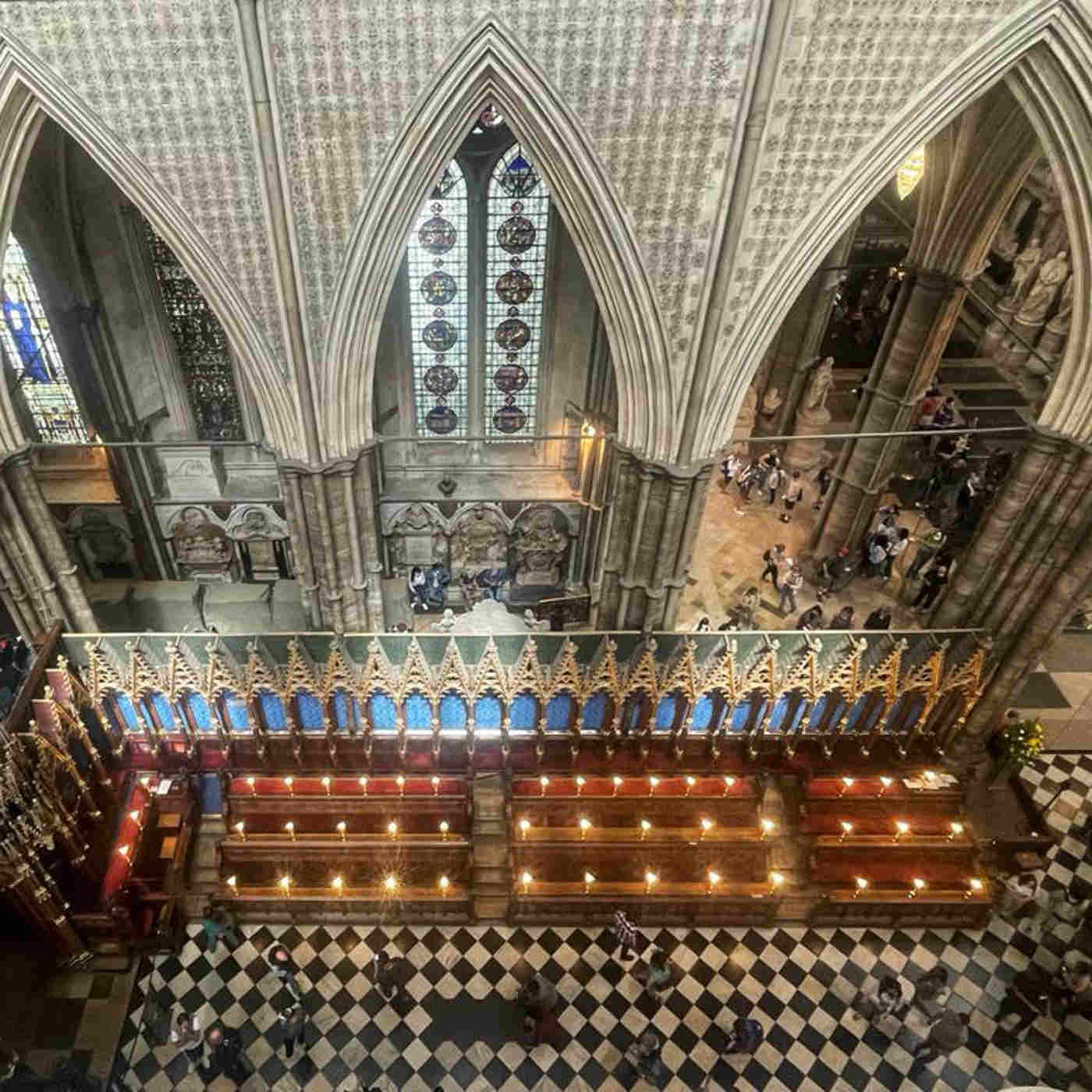History
Public History Research
Described by UNESCO as a ‘national Valhalla’ for burials and memorials of figures of national significance, Westminster Abbey holds Britain’s most important collection of tombs and funerary monuments.
The Abbey is also a custodian of global memory: the Abbey’s most intensive period of sculptural production, spanning the 18th to early 20th centuries, coincided with the height of the British Empire when nearly a quarter of the world’s landmass was governed from Westminster.
The individuals and events commemorated in the Abbey’s memorials are significant to diverse communities both globally and within diaspora communities in the UK, a reality underpinning the Abbey’s commitment to Public History – history that is told with the public, for the public, in an iconic space that is meaningful to the public.

The Abbey has embarked on a programme of research guided by its Christian mission and commitment to be a good custodian of its heritage. Global conventions and charters also require the Abbey to represent the histories of the whole range of communities connected to its memorial objects:
- UNESCO World Heritage Site: UNESCO requires sites inscribed with World Heritage Site status, especially those which have memorial aspects, to utilise cultural heritage for addressing emerging social and ethical challenges. The Abbey must align with UNESCO and United Nations values by using its cultural heritage assets, such as memorials, to contribute to peace, sustainable development, and intercultural dialogue which fosters understanding and respect.
- International Council on Monuments and Sites (ICOMOS): Under ICOMOS’ definition, the Abbey is a ‘site of memory’ and as such plays a vital role in fostering peace, preventing conflict, promoting resolution, and aiding post-conflict recovery. The Abbey fulfils this role by fostering networks for reflection, dialogue, and collaboration to build and restore social fabric both within the UK and across nations internationally.
As the custodian of cultural heritage objects that hold imperial and global memories, the Abbey confronts a story marked by both pain and progress. The Public History research builds on an initial review undertaken by the Keeper of the Muniments and the Curator in 2020. This page outlines a research strategy grounded in theological reflection and academic rigour, which seeks to understand what it means for a sacred space to also bear the weight of this imperial memory.
The research activities ask how histories of colonialism, decolonisation, and their ongoing reverberations shape the Abbey’s vocation as a place for expressing faith, gathering communities, and nurturing civic values.

Research aims
I. To understand how the Abbey’s liturgical and devotional practices have been shaped by, and respond to, the history of Empire and their associated memorial objects
Examples of research topics include:
- Understanding the Abbey’s role in prayer and reflection from the Empire’s expansion and decline to its continuing ministry in contexts of military commemoration and Commonwealth gatherings
- Identifying Anglican cathedrals and churches in former colonies with memorials related to the same colonial wars, events, or individuals as those memorialised in the Abbey, and understanding how these are understood and received within their local cultural settings
- Understanding the Abbey’s religious function in light of complex sources of wealth and benefaction
- Strengthening the Abbey’s approach to the respectful remembrance of officers or campaigns now associated with controversy, by exploring how military ethics, commemorative ethics, and the history of military law inform the ways in which the service and sacrifice of the war dead might be memorialised in relation to conflicts or actions that may now be viewed as unlawful.
II. To recognise the global heritage community for whom the Abbey preserves shared histories and collective memory
Examples of research topics include:
- Connecting communities to specific Abbey commemorations which cite events significant to their histories, and supporting community authorship in producing and disseminating knowledge related to their national or local memories
- Fostering knowledge about global expressions of Christian faith, including within the Anglican Communion, and deepening understanding about the faith of Christians who navigate the complex task of reconciling Christian theology and practice with their cultural heritage, the historical realities of colonialism, and their enduring after-effects
- Exploring the global dimension in shaping the British cultural canon which is celebrated in iconic areas of the Abbey such as Poets' Corner, understanding how colonised communities actively interpreted and adapted the work of British figures, contributing to their importance and recognition
III. To understand how the preservation of objects and memories at the Abbey address urgent questions facing humanity
Examples of research topics include:
- Examining how the Abbey’s commitment to historic preservation and conservation intersects with the function of memorialisation as a catalyst for progressive initiatives and social change, identifying instances when Abbey memorials have been linked to movements for justice or have influenced public consciousness and policy
- Evaluating the appropriateness of relating aspects of colonial history commemorated at the Abbey to contemporary global challenges and social inequalities – for example, in relation to migration, geopolitical instability, uneven development, environmental change, and human rights
Impact
Successful research means the Abbey’s memorial function will be a unifying and useful resource for understanding the heritage of diverse communities and the contemporary challenges we face.
Future generations will have the tools and knowledge for feeling, thinking, and speaking with assuredness and conviction about the complex story of the British Empire and the role of the Abbey as a place of dedication, reflection, and renewal.



